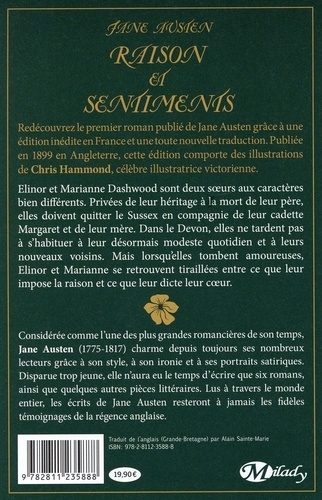

Jane can absolutely bust me when she starts penning that snappy prose laced with all those sly, subtle, sarcastic phrases. Pride and Prejudice is one of my all time favorite books and Sense and Sensibility is certainly up among the elite. I don’t spritz my wine, rarely eat quiche and have never had anything waxed (though the list of things that need it grows by the hour).īut I would walk across a desert in bloomers and a parasol to read Ms. Normally, I am not much of a soapy, chick-flick, mani-pedi kinda guy. I still twitch a bit, but I'm getting more and more man-comfortable saying that because there no denying that it’s true. The second half of the 20th century saw a proliferation of Austen scholarship and the emergence of a Janeite fan culture. Her work brought her little personal fame and only a few positive reviews during her lifetime, but the publication in 1869 of her nephew's A Memoir of Jane Austen introduced her to a wider public, and by the 1940s she had become widely accepted in academia as a great English writer.


Her plots, though fundamentally comic, highlight the dependence of women on marriage to secure social standing and economic security. She wrote two additional novels, Northanger Abbey and Persuasion, both published posthumously in 1818, and began a third, which was eventually titled Sanditon, but died before completing it.Īusten's works critique the novels of sensibility of the second half of the 18th century and are part of the transition to 19th-century realism. From 1811 until 1816, with the release of Sense and Sensibility (1811), Pride and Prejudice (1813), Mansfield Park (1814) and Emma (1815), she achieved success as a published writer. During this period, she experimented with various literary forms, including the epistolary novel which she tried then abandoned, and wrote and extensively revised three major novels and began a fourth. Her artistic apprenticeship lasted from her teenage years until she was about 35 years old. The steadfast support of her family was critical to her development as a professional writer. She was educated primarily by her father and older brothers as well as through her own reading. Jane Austen was an English novelist whose works of romantic fiction, set among the landed gentry, earned her a place as one of the most widely read writers in English literature, her realism and biting social commentary cementing her historical importance among scholars and critics.Īusten lived her entire life as part of a close-knit family located on the lower fringes of the English landed gentry.


 0 kommentar(er)
0 kommentar(er)
